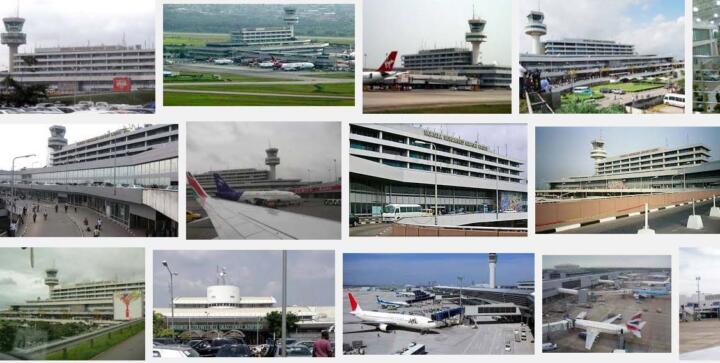The Infrastructure Concession Regulatory Commission (ICRC) has stressed the need for comprehensive planning in the development of airports across Nigeria to mitigate the issue of unviable airports. In a statement made during a recent aviation stakeholders’ meeting in Abuja, the ICRC emphasized that the proliferation of airports that fail to generate sustainable income is due to a lack of proper planning, oversight, and strategic investment.
The ICRC’s Director-General, Mr. Michael Ohiani, highlighted that while the Federal Government has made strides in expanding the aviation infrastructure across the country, many airports remain underutilized and operate below their financial potential. He argued that these airports, often built in areas with low passenger traffic or without clear business models, have become a drain on the country’s resources. According to him, a more strategic approach would significantly reduce the number of unviable airports.
The Challenge of Unviable Airports
Nigeria boasts over 30 airports, with several more in the pipeline. However, a substantial number of these airports have not been able to generate sufficient revenue to cover their operational costs. This has left the Federal Airports Authority of Nigeria (FAAN) with the challenge of subsidizing airports that do not make a profit, diverting funds from more viable projects.

Ohiani pointed out that the construction of airports in locations that lack the necessary economic activity and passenger demand has contributed to this problem. He noted that some airports were developed for political reasons rather than economic viability, leading to facilities that are underutilized.
“Airports are capital-intensive projects, and it’s important that we carefully plan where and how these airports are constructed. Without a strong business case, an airport can quickly become a burden on the economy,” Ohiani stated. He urged government bodies to ensure that feasibility studies and economic impact assessments are conducted before the development of any new airport.
The Role of Public-Private Partnerships (PPPs)
Ohiani stressed that one of the key solutions to making airports more viable is through Public-Private Partnerships (PPPs). The ICRC, which regulates the implementation of PPP projects, believes that involving private sector investors in the development and management of airports could bring in the necessary expertise and funding to improve airport efficiency.
According to Ohiani, “Private sector involvement ensures that airports are managed professionally and efficiently, with a focus on profitability and customer satisfaction.” He added that well-structured PPP agreements would help airports attract more traffic, enhance service delivery, and reduce the financial burden on the government.
One successful example of a PPP model in Nigeria is the Murtala Muhammed Airport Terminal Two (MMA2) in Lagos, which has been managed by a private concessionaire. The terminal has consistently operated at a profit, demonstrating the potential benefits of private sector involvement in airport management.
Planning for Regional Connectivity
To address the issue of unviable airports, Ohiani also recommended that airport development should focus on enhancing regional connectivity. Rather than building large airports in every state, he suggested that investments should be directed towards developing regional hubs that serve multiple states. This would concentrate traffic and resources, making the airports more economically viable.
He pointed out that regional airports could also benefit from enhanced cargo handling facilities, which would support local industries, particularly agriculture and manufacturing, by providing a faster route to international markets. “Airports should be designed to serve as economic drivers, not just for passenger traffic but also for cargo operations. This would enhance their utility and ensure they contribute to the local economy,” Ohiani noted.
The Importance of Sustainable Airport Management
The ICRC also emphasized the importance of sustainable management practices to ensure the long-term viability of airports. Ohiani stated that many of the country’s airports struggle with maintenance issues due to a lack of proper funding and planning. He called for the implementation of more sustainable management practices that would reduce operational costs and increase efficiency.
Part of the ICRC’s recommendations includes improving airport infrastructure to handle modern aviation needs. This includes upgrading runways, improving terminal facilities, and ensuring that airports are compliant with international standards. By doing so, Nigeria’s airports could attract more international airlines and increase traffic, which would, in turn, enhance profitability.
Need for Strong Regulatory Framework
Ohiani also highlighted the role of a strong regulatory framework in ensuring that airports are managed in a way that promotes profitability and sustainability. He urged the Federal Government to strengthen its regulatory oversight of the aviation sector, ensuring that airports are held to high standards of operational efficiency and service delivery.
“Regulatory bodies need to step up their oversight to ensure that airports are operating in line with best practices. This includes monitoring financial performance, service quality, and environmental sustainability,” he said.
He further explained that the ICRC would continue to work with relevant stakeholders, including FAAN, the Ministry of Aviation, and private investors, to develop and implement policies that would help transform Nigeria’s aviation infrastructure.
Conclusion
The ICRC’s call for better planning and management of Nigeria’s airports highlights the need for a more strategic approach to airport development. By focusing on viable business models, enhancing regional connectivity, and involving private sector partners, Nigeria can reduce the number of unviable airports and transform its aviation sector into a key driver of economic growth.
As the country continues to expand its infrastructure, it is crucial that future airport projects are guided by sound economic principles, ensuring that they contribute to the country’s overall development rather than becoming financial burdens.
Support InfoStride News' Credible Journalism: Only credible journalism can guarantee a fair, accountable and transparent society, including democracy and government. It involves a lot of efforts and money. We need your support. Click here to Donate
